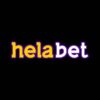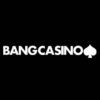Gambling has become an increasingly popular pastime in Nigeria, with both land-based and online betting shops witnessing significant growth in recent years. However, as with any form of entertainment or leisure activity, it is vital to approach gambling in a responsible and controlled manner to avoid developing or perpetuating potential problems.
This comprehensive guide will discuss the essence of responsible gambling in Nigeria: its importance, relevant Nigerian laws and regulations, measures undertaken by various stakeholders to ensure responsible gambling practices, and tips on how to gamble responsibly.
The Importance of Responsible Gambling
Responsible gambling is the practice of engaging in gambling activities in a controlled and sustainable manner, balancing both the enjoyment and potential financial consequences. This principle aims to minimize the harmful effects of gambling, such as addiction, financial loss, and social problems that may arise as a result.
Gambling addiction is a significant concern in Nigeria, as it is in many countries worldwide. A study conducted in 2015 by the Nigerian Institute for Medical Research revealed that the prevalence of problem gambling is between 4-7% in the country (Jesse Abaga, 2018). Furthermore, a 2018 report by the Lagos State Lotteries Board disclosed that Nigerians spent an estimated $5.3 billion annually on sports betting, reflecting a massive surge in gambling activities (Kansangre, 2018). Given these figures, encouraging responsible gambling is of paramount importance to protect Nigerians from falling victim to gambling-related issues.
Nigerian Laws and Regulations on Gambling
In Nigeria, gambling activities are regulated at both federal and state levels. The primary federal laws governing the gambling industry include the Nigerian Criminal Code Act (Cap C.38) and the Gaming Machines (Prohibition) Act (Cap G2). These laws primarily prohibit unlicensed gambling activities, with some states passing additional regulations to further control such activities within their jurisdictions.
In 2005, the Nigerian Lottery Regulatory Commission (NLRC) was established under the National Lottery Act, with a mandate to regulate online and offline lotteries, casinos, and sports betting activities nationwide. Consequently, all operators seeking to provide gambling services in Nigeria must obtain a license from the NLRC.
In addition to the federal regulations, each state has the power to legislate its gambling activities. The Lagos State Lotteries Board, for instance, is responsible for regulating gambling activities in Lagos. It enforces the Lottery Industry Code of Practice, which stipulates responsible gambling practices that all licensed gambling operators must comply with in Lagos State.
Measures Taken by Stakeholders & State to Ensure Responsible Gambling Practices
The Nigerian government and various stakeholders have taken several steps to encourage responsible gambling and reduce the harmful consequences of gambling addiction in the country. Some of these measures include:
- Licensing and Regulation: As detailed above, gambling operators must obtain a license from the Nigerian Lottery Regulatory Commission or relevant state authorities before commencing operations. This regulatory framework ensures that only responsible gambling operators with strict adherence to laws and regulations can operate within the Nigerian market.
- Enforcement of Age Restrictions: The legal age for gambling in Nigeria is 18 years, and operators are required to strictly enforce this law. Most gambling establishments, whether land-based or online, have mechanisms in place to verify the age of customers, mainly through the use of identification documents.
- Responsible Gambling Initiatives: Numerous gambling operators have adopted responsible gambling initiatives voluntarily or as part of their licensing requirements. These initiatives usually involve providing information on responsible gambling practices, offering self-exclusion options, and providing access to free helplines and support services.
- Public Awareness Campaigns: To educate the public on the dangers of problem gambling and promote responsible gambling practices, awareness campaigns are initiated by government agencies, non-governmental organizations, and gambling operators. For example, events such as World Responsible Gambling Day are commemorated in Nigeria, offering an avenue to enlighten the populace about responsible gambling.
Tips on How to Gamble Responsibly
Here are some valuable tips to help you gamble responsibly and minimize the risks associated with gambling activities:
- Set Limits: Before you start playing, set limits on the amount of money and time you are willing to spend. You should establish these limits based on how much you can comfortably lose without adversely affecting your wellbeing or financial health.
- Treat Gambling as Entertainment: Approach gambling as a leisure activity and not as a means to earn money, make up for losses, or alleviate financial difficulties. The outcome of gambling is unpredictable, and treating it as a source of income is not a good idea.
- Be Informed About the Games: Before engaging in any gambling activity, take the time to learn the rules and strategies involved. This will not only enhance your enjoyment but also reduce the possibility of excessive financial losses.
- Keep Track of Your Spending: Maintaining a clear record of your gambling expenses can help you avoid financial strains associated with excessive gambling. Recording your wins and losses can also help you.
Professional Help
If you or someone you know is struggling with problem gambling in Nigeria, there are several venues that you can contact for help and support. Here are some of the recommended options:
- The National Drug Law Enforcement Agency (NDLEA): The NDLEA is a government agency that offers treatment and rehabilitation programs for individuals with addiction issues, including problem gambling. You can contact them through their helpline at 090-80787081.
- The Nigerian Gaming Commission (NGC): The NGC is a regulatory body that oversees the gaming industry in Nigeria. They have a complaint and dispute resolution mechanism that can help problem gamblers address issues with operators. You can contact them through their website or email address: info@ngc.gov.ng.
- The Nigerian Lottery Regulatory Commission (NLRC): The NLRC is another regulatory body that oversees the lottery and gaming industry in Nigeria. They offer a self-exclusion program for individuals who want to restrict their access to gambling activities. You can contact them through their website or email address: info@nlrc.gov.ng.
- The Federal Neuro-Psychiatric Hospital: This hospital offers mental health services, including treatment for addiction and compulsive gambling. You can contact them through their helpline at 0706-696-2386.
- The House of Refuge: This is a non-governmental organization that offers support and counseling services for individuals with addiction issues, including problem gambling. You can contact them through their website or phone number: +234-816-959-0000.
It’s important to seek help and support if you or someone you know is struggling with problem gambling. These venues can offer a range of services and support to help individuals overcome their addiction and regain control of their lives.













